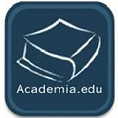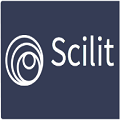A Liberal Voyage of Teacher Education in India: A Historic Perception 2.0
DOI:
https://doi.org/10.48001/veethika.2021.07.04.005Keywords:
Education, Teacher education, Teacher training, NPE, NCTE, POA, RIE, Education committee, Education commission`Abstract
Good's dictionary of education defines teacher education as " All formal and informal activities and experiences that help to qualify a person to assume the responsibility as a member of the educational profession or to discharge his responsibility most effectively". R. N. Tagore rightly said, " A teacher can never truly teach unless he is still learning himself. A lamp can never light another lamp unless it continues to burn its own flame". The Education Commission (1964-66) has written "The Destiny of India is now being shaped in their live classroom situation.
The National Policy on Education 1986 said: "The status of the teacher reflects the socio- cultural ethos of the society; it is said that no people can rise above the level of its teachers". The role of teacher education is to would the educational system from Ancient to modern or present education as per the need of the present society. The Educational History has been classified in two phases, in first phase pre-independence and second phase post-independence.
In first phase it deals with the ancient education system. In second phase it deals the educational system till present age, progress of the education, quality teachers and teacher educators, as it has been considered that teaching is a noblest profession among all profession. It has been considered as the oldest profession in the world.
From time to time, it has been observed a dramatic change, in preparation, presentation, role, its competence, and functions. As per the need of the society it has become imperative from time to time. It has been realized that as per the need of the society it is for a change in the teacher education programs.
Downloads
References
Aggrawal JC.Teachers and Education in a Developing Society.New Delhi:Vikas,1996.
Altekar.A.S. (1965), Education in Ancient India, Varanasi,Nandkishor and Bros.
American International Journal of Research in Humanities, Arts and Social Science, 5(1):137-142
Annual Report. Government of India, Ministry of Human Resource Development, Department of Education with NIC (National Information Centre), 1994-95: 2004-2005.
Arora, A., Chakraborty, P., Bhatia, M. P. S., & Mittal, P. (2021). Role of Emotion in Excessive Use of Twitter During COVID-19 Imposed Lockdown in India. Journal of Technology in Behavioral Science, 6(2), 370–377. https://doi.org/10.1007/s41347-020-00174-3
Balwaria R,Gupta P. Historical Perspective of Teacher Education in India. International Educational E-Journal. 2014;3(1):54-65.
Bhatia, A., & Mittal, P. (2019). Big Data Driven Healthcare Supply Chain: Understanding Potentials and Capabilities. SSRN Electronic Journal. https://doi.org/10.2139/ssrn.3464217
Chakraborty, P., Mittal, P., & Arora, U. (2018). Children aged 6–24 months like to watch YouTube videos but could not learn anything from them. Acta Paediatrica, International Journal of Paediatrics, 107(8), 1461–1466. https://doi.org/10.1111/apa.14291
Chakraborty, P., Mittal, P., Gupta, M. S., Yadav, S., & Arora, A. (2021). Opinion of students on online education during the COVID-19 pandemic. Human Behavior and Emerging Technologies, 3(3), 357–365. https://doi.org/10.1002/hbe2.240
Chakravertty, N. (2021). A Question of Dignity-A Comparative and Historical Study of Chinua Achebe’s “Things Fall Apart” and Kalyan Rao’s “Untouchable Spring.” International Journal of Historical Insight and Research, 7(1), 1–10. https://doi.org/10.48001/ijhir.2021.07.01.001
Keay. F. E. (1980), Ancient Indian Education,New Delhi,Cosmo Publication.
Mittal, P. (2020). A multi-criterion decision analysis based on PCA for analyzing the digital technology skills in the effectiveness of government services. In 2020 International Conference on Decision Aid Sciences and Application, DASA 2020 (pp. 490–494). IEEE. https://doi.org/10.1109/DASA51403.2020.9317241
Mittal, P. (2020). Big data and analytics: a data management perspective in public administration. International Journal of Big Data Management, 1(2), 152. https://doi.org/10.1504/ijbdm.2020.112415
Mittal, P., & Raghuvaran, S. (2021). Entrepreneurship education and employability skills: the mediating role of e-learning courses. Entrepreneurship Education, 4(2), 153–167. https://doi.org/10.1007/s41959-021-00048-6
Mukherjee,S.N.(1951).History of Education in India,Bombay; Acharya Book Depot.
Mukherjee. S.N.(1964), Education in India today and tomorrow,Baroda, Acharya Book Depot.
NCTE (1993). National Council for Teacher Education Act, Section 2(1),New Delhi.
NCTE (1998). Policy Perspectives in Teacher Education ,NCTE Document 23/1998, National Council for Teacher Education, New Delhi.
NCTE(1999).Teacher Education in Uttar Pradesh, National Council for Teacher Education, New Delhi.
Ranjan R, Pandey A, Ranjan V. Education in Pre Independence Period-a review,2014
Rawat.P.L. (1970),History of Indian Education,Agra,Ram Prasad and Sons.
Saxena NR,Mishra BK, Mohanty RK.TeacherEducation.Meerut:R.Lall Depot,2012.
Shanker.Uday (1984), Education of Indian Teachers.New Delhi, Sterling Publisher Pvt.Ltd.
Shukla.R.S.(1978), Emerging Trends in Teacher Education.Allahabad,Chugh Publication.
Singh.R.P. (1970), Education in Ancient and Medieval India.Delhi,Arya Book Depot.
Sudha Tiwari (2007), Education in India (Volume III), Atlantic Publishers and distriburors, New Delhi.
Downloads
Published
How to Cite
Issue
Section
License
All QTanalytics journals are published Open Access. Articles are licensed under an open access licensed under Creative Commons Attribution-NonCommercial 4.0 International License. In addition, the article may be reused and quoted provided that the original published version is cited. These conditions allow for maximum use and exposure of the work, while ensuring that the authors receive proper credit.











 journals@qtanalytics.in, support@qtanalytics.in | Phone: +91-9458270556
journals@qtanalytics.in, support@qtanalytics.in | Phone: +91-9458270556
